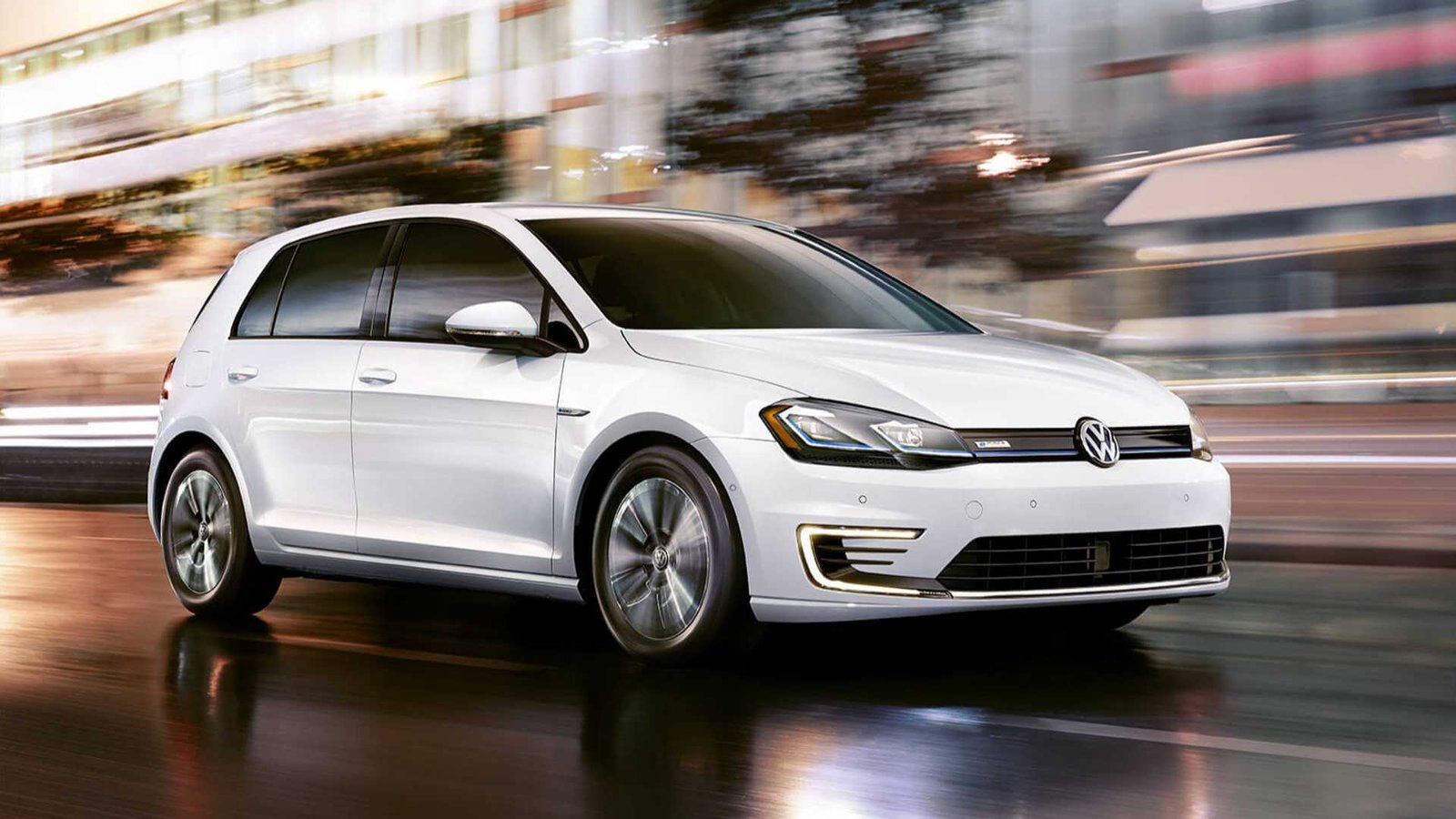The e-Golf had to die so the ID.3 could live, but Volkswagen is preparing the ol’ switcheroo. The change, however, might take longer than planned. While VW has announced plans to launch an electric Golf by the end of the decade, a new report suggests the project isn’t progressing as expected. The culprit appears to be the high costs of retooling the Wolfsburg factory for the ninth-generation model.
Citing company insiders, Bloomberg (subscription required) claims VW doesn’t have the money right now to upgrade its main factory in Germany. As a result, the expenditure must “be deferred to a later spending period,” leading to a nine-month delay in the return of the electric Golf.
According to the same sources familiar with VW’s agenda, the electric T-Roc has suffered a similar setback. The compact crossover, planned without a combustion engine, is also scheduled for production in Wolfsburg, likely to start shortly after the first electric Golf rolls off the line.
Delaying the Golf Mk9 is likely to affect the current-generation model. VW had planned to move Mk8 production to its Puebla factory in Mexico from 2027. However, the hatchback and wagon may continue to be built in Wolfsburg longer than intended due to delays in retooling the plant for EVs.
The next-gen Golf will be among the first VW Group products to use the all-new Scalable Systems Platform. Although SSP is primarily a bespoke architecture for electric cars, it can still accommodate combustion engines, though only as generators for range-extending vehicles.
SSP will serve as the backbone of the company’s electric lineup, underpinning a wide variety of products across multiple segments. In the Golf’s case, VW is collaborating with Rivian to turn its most successful car of all time into a “software-defined vehicle.”
When the electric Golf finally returns, it won’t replace the current model. VW has suggested the Mk8 could remain on sale for another decade, until the EU bans sales of new combustion cars. That legislation, however, isn’t set in stone. A review is scheduled before the end of the year, and mounting pressure from automakers could still give ICE a new lease on life beyond 2035. Even if the gasoline engine stays, it may be restricted to plug-in hybrids or EVs with range extenders.
Whatever happens, VW still needs to plan carefully and bring the electric Golf to market sooner rather than later. Contrary to popular belief, EVs are gaining ground in Europe. Through July, electric cars accounted for 17.4 percent of total deliveries on the continent, according to data from the European Automobile Manufacturers’ Association (ACEA). That’s a notable increase from the same period last year, when EVs made up only 13.8 percent. The arrival of cheaper models, such as VW’s own ID.2 Polo and ID.1, should further convince buyers to make the switch.
Once a dominant force in the industry, the Golf has been quietly fading in recent years. Internal documents seen by Reuters show production dropped from more than one million units in 2015 to just over 300,000 last year. The number could fall further to 250,000 this year. But its shocking downfall isn’t solely due to competition. The T-Roc, essentially a crossover Golf, is clearly cannibalizing hatchback and wagon sales.
Source:
Automotive News Europe
